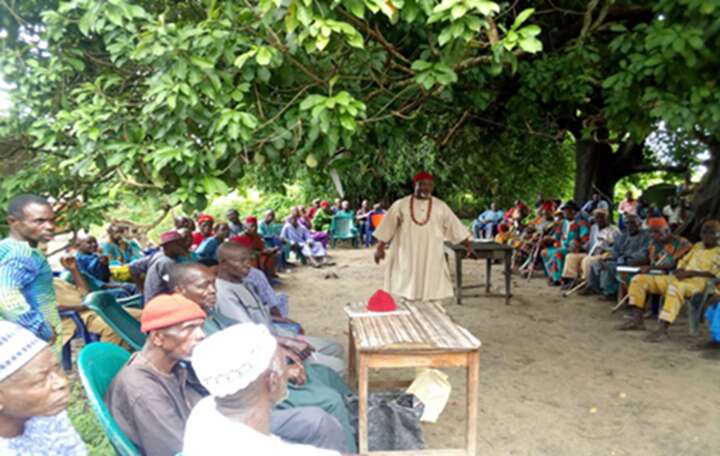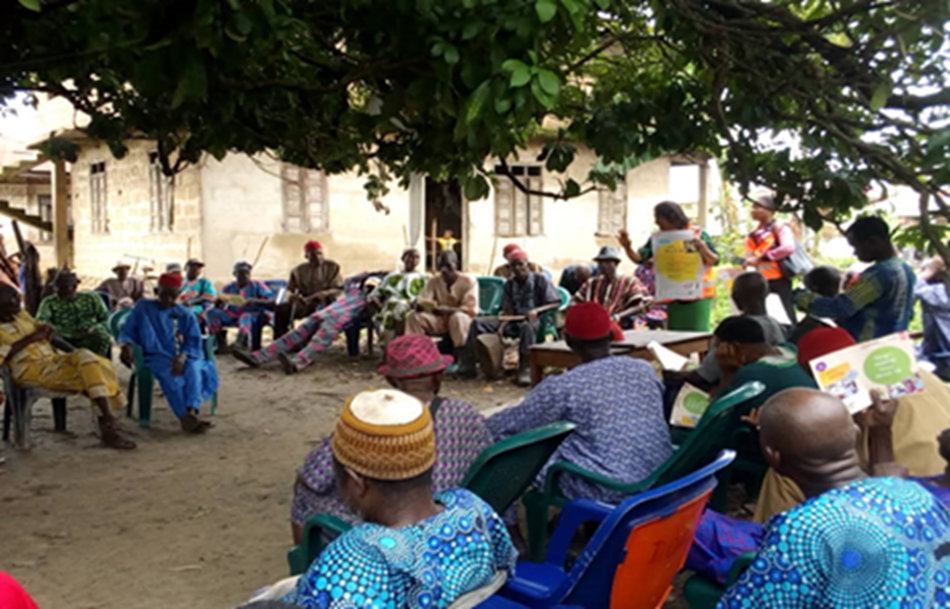
In 2018, Heads of States and Governments met in New York at a UN High Level Meeting (HLM) on Tuberculosis (TB). At the meeting ambitious targets and commitments for ending TB epidemic by 2030 were set and described in the UN Declaration on TB.
Authors: Dr Chukwuebuka Ugwu, Professor Bertie Squire, Dr Tom Wingfield, John Bimba
The Declaration recognized that, despite being preventable and curable, 40% of people with TB disease globally miss out on quality care, including life-saving medicines. Section 30 of the Declaration specifically recognized that finding undetected and untreated men as well as empowering women and girls are critical to finding the undetected people with TB. Nigeria faces significant challenges to finding the ‘missing’ people with TB: in 2018, 76% of all people with TB disease in Nigeria were missed by the public health systems. In 2020, this percentage had reduced but was still unacceptably high at 70%. The reasons for this are manifold and link to the country’s particular socio-cultural context as well as the characteristics of TB case-finding, treatment and care. Thus, Nigeria is in urgent need of new ideas to help make TB diagnosis and care more welcoming, accessible, and equitable to men, women and children.
In thinking through this multi-dimensional problem, it emerges that in Nigeria, men make up the majority of those affected by TB. In 2012, Nigeria conducted its first population TB prevalence survey. The survey indicated that the actual number of people with TB was more than double previous estimations and that two out of every three people with TB who were missed were men. Nearly a decade after the survey, men have yet to be recognized as a priority group in tackling this disease. This means there is a lack of targeted interventions to find, diagnose, and cure the majority of missing people with TB. It also means that we do not have the tools to understand the potential gender differentials of TB transmission, which would feed into new approaches to curb its spread.
It is also apparent that men suffer longer delays in accessing TB care and run a higher risk of having unsuccessful outcomes of TB treatment, such as dropping off from care, failure of treatment, and death. This is, in part, because in Nigeria, men tend to prioritize their role as breadwinners over care seeking for TB, particularly in the early stages of the disease when symptoms, such as cough, may seem mild. More research is needed to understand the bottlenecks affecting men and women that delay their access to TB care and to support the design and implementation of services to address these.
At the September 2021 UNGA side event on TB, the National Coordinator of the Nigerian TB and Leprosy control program (NTBLCP) recounted the country’s recent successes in fighting TB. There are 84% more TB treatment centres, the private sector has played a larger role in finding people with TB, and 95% of people treated for TB were tested for HIV. Despite the COVID-19 pandemic, the NTBLCP reported that the number of notifications of people with TB had increased by 15% and the proportion of people who successfully completed treatment was over 85%. But challenges remain, including the current high proportion of missing cases. These hamper Nigeria’s progress towards the WHO End TB Strategy’s 2025 milestone of halving the number of people newly affected by TB.

The 2021 Nigerian National TB Conference, organized by NTBLCP, Stop TB Partnership, and other partners, is built around the timely theme of ‘Sustaining a resilient TB response in Nigeria: Addressing the impact of COVID-19 and other diseases’. The conference, which will bring together TB stakeholders, healthcare workers and the TB research community, could not have come at a better time. Although the NTBLCP has displayed great resilience in the face of the pandemic, this moment presents the TB programme with a unique opportunity to leap forward. Beyond resilience, we can build transilience, which would enable us to transform the system whilst recovering from COVID-19. As part of this, Nigeria needs to sustain and scale up deployment of the innovations that have contributed to increased detection of people with TB. Nigeria also needs to develop a better understanding of access barriers to care for men and women and to design its TB services to eliminate these barriers.

Authors: Chukwuebuka Ugwu, John Bimba, Bertie Squire and Tom Wingfield
This is the first blog in a series that examines the gender sensitive TB interventions in Nigerian communities, drawing on the research engagement of The LIGHT Consortium.
